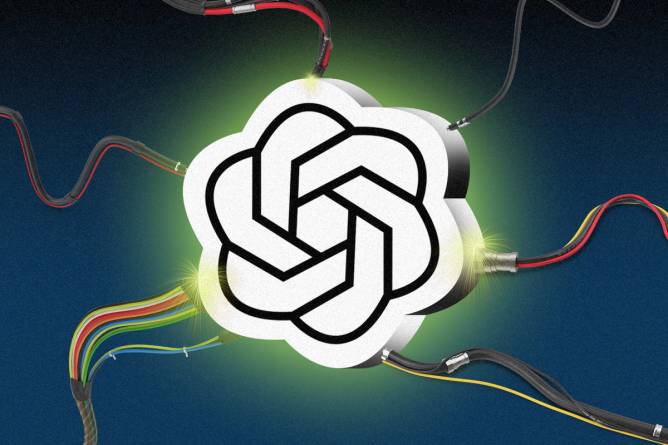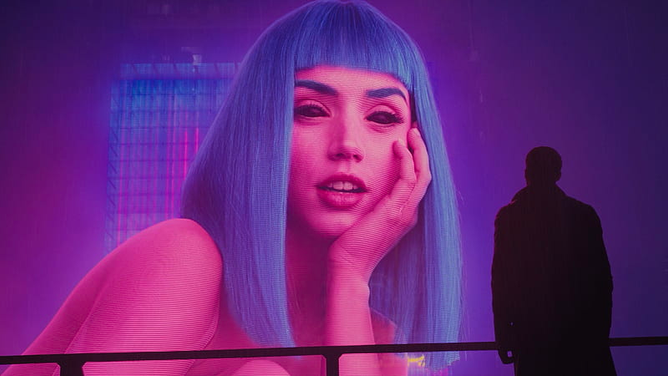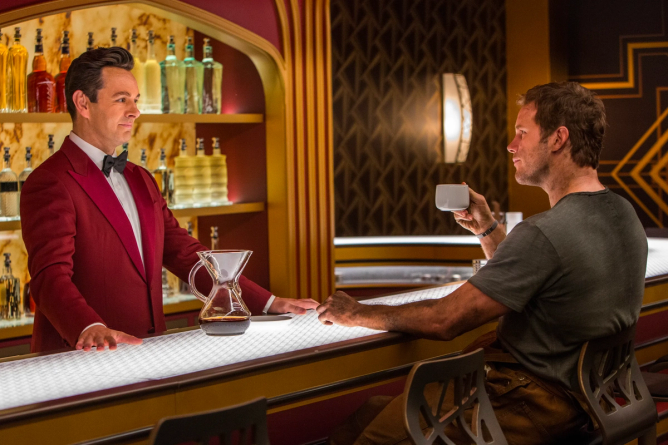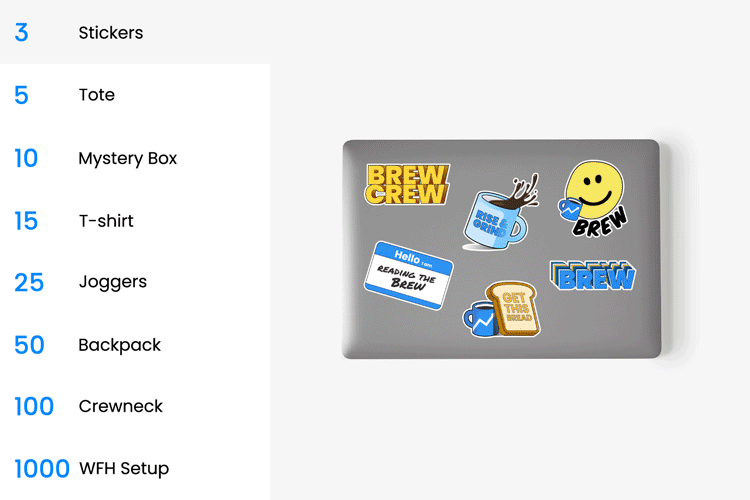Good morning. Today is Veterans Day, when Americans honor all who have served our country in the armed forces. It’s celebrated on November 11 each year because on that morning in 1918 (at the 11th hour of the 11th day of the 11th month), the Allied nations and Germany signed an armistice that ended the fighting in World War I.
This being a holiday—and a weekend morning to boot—we decided to switch things up from our typical news roundup and do a deep dive on a specific business topic: We looked at the calendar and noticed that ChatGPT is about to turn one year old, if you can believe it. While we can’t possibly cram 12 months of AI breakthroughs into one newsletter, we hope to offer you a quick tour of some of the most fascinating stories.
—Dave Lozo, Neal Freyman, Abby Rubenstein
|
|
|
|

|
Nasdaq
|
13,798.11
|
|
|

|
S&P
|
4,415.24
|
|
|

|
Dow
|
34,283.10
|
|
|

|
10-Year
|
4.614%
|
|
|

|
Bitcoin
|
$37,350.00
|
|
|

|
TKO
|
$79.24
|
|
|
|
*Stock data as of market close, cryptocurrency data as of 2:00am ET.
Here's what these numbers mean.
|
|
Markets: Stocks bounced back yesterday thanks to relative calm in the bond market. But WWE parent TKO hit the mat after its controversial executive chair Vince McMahon revealed plans to sell a sizable piece of his stake in the wrestling business.
|
|
|
|
Hannah Minn
ChatGPT was launched nearly a year ago, in November 2022, and if there ever were a time to use a Pandora’s box metaphor, this is it. Powered by a large language model trained on 570 gigabytes of internet data (300 billion words), the chatbot can generate text that eerily mimics human speech—but with far more information at its disposal than an actual person.
The most bullish evangelists think ChatGPT and its growing number of chatbot rivals will fundamentally transform work, communications, the creative arts, and virtually every other discipline. Some have argued that any intentional slowdown in AI progress is akin to murder since the technology could help us produce lifesaving health advances. Generative AI, the broader tech category ChatGPT falls under, has been projected to add up to $4.4 trillion in value to the global economy per year thanks to productivity boosts. One example: Hollywood mogul Jeffrey Katzenberg said this week that generative AI could reduce the cost of creating an animated film by 90%.
But with great opportunity comes extreme risk. Since ChatGPT’s launch last year, governments across the globe have been racing to create guardrails around the rapidly advancing technology. Major world powers, including the US, EU, and China, warned that AI could bring about “catastrophic” harm to humans if left unchecked. Elon Musk, who’s repeatedly raised alarms on superhuman intelligence, called AI “the most disruptive force in history” and one that would eventually replace human jobs. Even Sam Altman, CEO of ChatGPT-maker OpenAI, signed an open letter warning that unregulated AI could be the asteroid that wipes out humanity.
While predictions about AI are hypothetical, the technology has had real-world consequences in its first year. ChatGPT became the fastest-growing app in history. Concerns about the technology were a central focal point of the writers and actors strikes. A fake AI-generated image of a Pentagon explosion briefly sent stocks tumbling. The arms race to build the data centers that power AI models is sucking up scarce water resources. A four-week-old startup raised Europe’s largest-ever seed round of more than $100 million. And we got a drippy pope.
Below, you’ll find a quick rundown of the AI developments that most piqued our interest and are most likely to send you down a rabbit hole this Saturday morning.—NF
|
|
The holidays are a-comin’, and they’re bringing sweet treats—pies, eggnog, and cookies galore. During this season of food-filled festivities, it’s prime time to give your gut the care it needs.
That’s where Akkermansia from Pendulum can help. Take it from award-winning actor Halle Berry: “Akkermansia will change your life because it will change your gut.” This powerful probiotic strain improves gut health by strengthening the gut lining and reducing permeability, based on in vitro studies.
Need more proof? Akkermansia has been gaining traction in the scientific and medical communities with over 3,000 science publications—and counting.
Season’s eatings need gut health greetings! For a limited time, get 25% off your first month of Pendulum membership with promo code MORNINGBREW25.
|
|
Blade Runner 2049/Alcon Entertainment and Sony Pictures
As with any revolutionary technology that could make the world a better place, generative AI is instead busy selling you stuff.
Amazon has launched an AI-powered tool that lets advertisers generate imagery directly on the Amazon Ads platform. The tool is designed to increase sales and streamline marketing.
How it works
Let’s say you’re selling cookware. In the prehistoric times of 2018, you’d have to take a photo of your pots and pans or pay a professional to do it, then upload the photo. Exhausting! Amazon allows you to generate background staging you can drop your product into, which the company says improves the click-through rate by up to 40% compared to listings with standard imagery.
One challenge for Amazon’s generator is rendering the correct scale. As noted by New York Magazine, artificial environments make it difficult to judge the actual size of the products. Throw in the fact that most AI-generated images, for now, appear less-than-authentic, and advertisers are using something that comes across as cheap rather than inexpensive.
Still, everyone is doing it
Amazon is not the only company using AI to create theoretically better ads.
-
Meta announced its version of an ad generator last month, promising advertisers “a new era of creativity that maximizes the productivity, personalization, and performance” of campaigns.
-
Google says its product will allow the future of advertising to evolve.
-
TikTok has Creative Assistant, which “draws information from a wealth of TikTok-focused creative knowledge, providing you with the most relevant responses for when you’re creating ads.”
What about human photographers? AI image generators don’t necessarily mean the end of product photography, as brands will still need decent photos of their wares. Adobe SVP of Digital Media Ashley Still said fears of graphic design going away due to AI images is like when people thought painting would vanish after the invention of the camera.—DL
|
|
Getty Images
San Francisco is hoping AI can revitalize a downtown that the pandemic decimated. The city has ~25 million square feet of vacant office space, per real estate investment firm CBRE—including 9 million square feet that tenants want to sublease.
The good news: The world’s most prominent tech hub for decades is home to 20 of the 50 businesses on Forbes’s list of promising AI companies, Axios reported. And their quest for office space is sparking hope that it’s the start of a boom that will resemble the dotcom and smartphone revolutions in the Golden City.
As of August, 10 AI companies were seeking ~750,000 square feet of office space in San Francisco, per real estate services company JLL, which said AI companies have tripled their footprint in the city since 2016.
But it won’t be a quick fix: AI companies currently lack the scale to fill all the empty downtown real estate. OpenAI has only ~500 employees (but has plans to triple its workforce), while one of the biggest AI firms, Databricks, has ~5,500 employees.
“We’re seeing more smaller firms now hunting for space,” Derek Daniels, the Bay Area research director for Colliers, told the San Francisco Standard in September. That’s a start, but those smaller firms have to become much bigger to make a real dent in the city’s painful 34% office vacancy rate.—DL
|
|
|
Planning to list on Nasdaq. Investors love to see companies that push the boundaries of what’s possible. Meet Autonomix, the company that’s working to pioneer a new way to treat diseases—using a tiny microchip on the end of a catheter. Learn about the $100b+ in potential markets and invest in Autonomix before their planned Nasdaq listing.
|
|
Passengers/Columbia Pictures
While many people are using ChatGPT for things like coding help, completing homework assignments without their teachers knowing, and creating recipes from what’s left in the refrigerator, others are using the chatbot for a more intimate purpose—therapy.
The average cost of a one-hour session with a mental health professional in the US is between $100 and $200, but a conversation with ChatGPT is free. You can also spill your guts to a chatbot any time you’re in front of a computer, so you don’t have to wait for a weekly standing appointment or therapists who don’t have room for new patients.
But it’s not the same. Experts are warning that while chatbots can offer basic mental health support, they’re not equipped to provide clinical support and can raise thorny issues.
-
Ethics: Therapists are trained and licensed and must maintain a certain standard of care; a chatbot isn’t and doesn’t.
-
Privacy: When you ask a chatbot a question, you could be putting sensitive information on the internet.
-
Safety: A chatbot can give false information (more on that below) or provide harmful instructions.
What’s the future for chatbots in therapy? Some psychologists believe that the technology will advance to the point where it could be used in conjunction with real therapy. But, as of now, experts say there’s no substitute for human counseling—even if OpenAI execs seem to support the faux version when combined with ChatGPT’s new voice mode.—DL
|
|
5secondfilms via Giphy
It took less than a year for ChatGPT to go from a fledgling scholar to a strong candidate for Mensa.
GPT-4, the advanced language model that OpenAI released in March (available only through subscription), is a more powerful version of its predecessor, GPT-3.5.
GPT-4 was put to the test, quite literally, and blew away GPT-3.5. Here’s a sample of some of the results:
-
The bar exam: GPT-4 was in the 90th percentile with a score of 298 out of 400. GPT-3.5 came in the 10th percentile.
-
The SAT: GPT-4 scored 1400 out of 1600, ranking in the 89th percentile of test-takers. GPT-3.5 scored 1260.
-
AP exams: GPT-4 received a 5 on Art History, Biology, Environmental Science, Macroeconomics, Microeconomics, Psychology, Statistics, US Government, and US History, according to OpenAI. GPT-3.5 received a 5 only on Art History and Psychology.
-
Sommelier exams: GPT-4 has also passed the Introductory Sommelier, Certified Sommelier, and Advanced Sommelier exams with scores of 92%, 86%, and 77%, respectively. GPT-3.5 had a less discerning palate, earning marks of 80%, 58%, and 46%.
You can check out the results of all the tests ChatGPT has taken here.—DL
|
|
RoMeLa via Giphy
Despite chatbots appearing to be know-it-alls, they have a nasty habit of making things up. Known in the industry as “hallucinations,” these fibs can be extremely damaging because ChatGPT’s nose doesn’t elongate every time it lies.
A startup founded by ex-Googlers recently concluded that chatbots fabricate answers far more than we knew: at least 3% of the time, and up to 27% of the time.
In the past year, numerous hallucinations have made headlines. Some of the #AIfails:
-
In April, GW professor Jonathan Turley was falsely named by ChatGPT when a UCLA professor asked for five examples of college professors who were accused of sexual harassment. ChatGPT referenced a Washington Post article that did not exist, although WaPo wrote a real follow-up article that vindicated Turley.
-
Alphabet lost $100 billion in market value when Google’s chatbot Bard made false claims about the James Webb Space Telescope in its debut.
-
Microsoft’s AI-powered Bing search engine offered blatantly wrong information on topics like Mexican nightlife, Billie Eilish, and the Gap.
-
A lawyer who used ChatGPT to write a legal brief asked a judge for leniency after it was discovered that the chatbot cited at least six cases that…didn’t exist.
-
ChatGPT reported that a mayor in Australia was imprisoned for bribery when he was actually a whistleblower and never charged with a crime.
They are still in their infancy, but generative AI tools appear to be the latest problem in the battle against false information.—DL
|
|
-
President Biden plans to have his first face-to-face meeting in a year with China’s leader, Xi Jinping, on Wednesday. They’re expected to discuss issues including the Israel–Hamas war, economic cooperation, and...AI.
-
ICBC, the world’s largest bank, suffered a ransomware attack at its US division that reportedly disrupted trading in Treasurys and forced the bank to trade using a USB stick.
-
Michigan football coach Jim Harbaugh was banned by the Big Ten from coaching the rest of the team’s regular season games as the sign-stealing scandal continues.
-
The Grammy nominations were announced, and it’s a big year for women artists. SZA got the most nods (nine), and Taylor Swift broke a record by becoming the first person to have seven songs nominated in the song of the year category.
-
An Elon Musk biopic based on Walter Isaacson’s biography is being developed by A24 with Darren Aronofsky set to direct.
|
|
Brew crossword: In today’s crossword, the four themed answers have clues that were written by AI (the rest were written by Mary). Play it here to see who writes the better clues: human or machine.
Open House
Welcome to Open House, the only newsletter section that knows a bean can begin an adventure. We’ll give you a few facts about a listing and you try to guess the price.
 Coldwell Banker Realty Coldwell Banker RealtyToday’s listing in Roxbury, Connecticut, was the country retreat of the legendary Broadway composer and lyricist Stephen Sondheim. While we can all agree there’s no place like London, this 3,698-square-foot home has been beautifully restored from its original 1792 construction and is an ideal setting to host a rumble.
Amenities include:
- 3 beds, 3.5 baths
- Vaulted ceilings
- Quite a few musical posters
How much for this house that needs somebody, not just some body?
|
|
$3.25 million
Word of the day
Today’s Word of the Day is: fledgling, meaning “a person or organization that is immature, inexperienced, or underdeveloped.” Thanks to Cynthia Perez from Illinois for the budding suggestion. Submit another Word of the Day here.
|
|
|
✳︎ A Note From Autonomix
This is a paid advertisement for Autonomix’s Reg A public offering. Additional information concerning the offering and its related risk factors can be found in the Form 1-A offering circular.
|
|
ADVERTISE
//
CAREERS
//
SHOP 10% OFF
//
FAQ
Update your email preferences or unsubscribe
here.
View our privacy policy
here.
Copyright ©
2023
Morning Brew. All rights reserved.
22 W 19th St, 4th Floor, New York, NY 10011
|
|









.gif)



